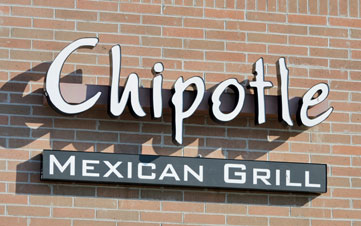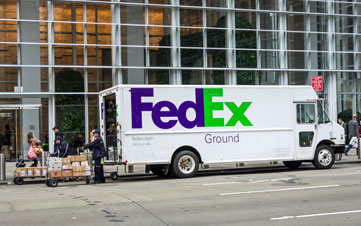7 Great Stocks for the Next 15 Years
When you purchase a stock, you should think of yourself as a partner in the business forever—or until you need the cash.


Profit and prosper with the best of Kiplinger's advice on investing, taxes, retirement, personal finance and much more. Delivered daily. Enter your email in the box and click Sign Me Up.
You are now subscribed
Your newsletter sign-up was successful
Want to add more newsletters?

Delivered daily
Kiplinger Today
Profit and prosper with the best of Kiplinger's advice on investing, taxes, retirement, personal finance and much more delivered daily. Smart money moves start here.

Sent five days a week
Kiplinger A Step Ahead
Get practical help to make better financial decisions in your everyday life, from spending to savings on top deals.

Delivered daily
Kiplinger Closing Bell
Get today's biggest financial and investing headlines delivered to your inbox every day the U.S. stock market is open.

Sent twice a week
Kiplinger Adviser Intel
Financial pros across the country share best practices and fresh tactics to preserve and grow your wealth.

Delivered weekly
Kiplinger Tax Tips
Trim your federal and state tax bills with practical tax-planning and tax-cutting strategies.

Sent twice a week
Kiplinger Retirement Tips
Your twice-a-week guide to planning and enjoying a financially secure and richly rewarding retirement

Sent bimonthly.
Kiplinger Adviser Angle
Insights for advisers, wealth managers and other financial professionals.

Sent twice a week
Kiplinger Investing Weekly
Your twice-a-week roundup of promising stocks, funds, companies and industries you should consider, ones you should avoid, and why.

Sent weekly for six weeks
Kiplinger Invest for Retirement
Your step-by-step six-part series on how to invest for retirement, from devising a successful strategy to exactly which investments to choose.
When you purchase a stock, you should think of yourself as a partner in the business forever—or until you need the cash. But forever, or even 30 years, is way out on the dim horizon. A more manageable view might be 15 years. If you invest $10,000 today in a stock that returns an average of 12% per year (a return that is two percentage points higher than the historic long-term return of Standard & Poor’s 500-stock index), you’ll end up with about $55,000.
Not all stocks, however, are suitable long-term buys. A company you expect to be attached to for 15 years should have six characteristics: products that can endure and aren’t fads; a history of leaders who can adapt; a strong balance sheet; a benign competitive environment; a track record of innovation balanced by vigilance against taking on too much risk; and a strategy that looks beyond the next year and certainly beyond the next quarter.
It’s hard to find all of those traits in one place. But if you’re going long, here are seven companies that have staying power and a good shot at delivering 12% annualized returns over the next 15 years. Lard your portfolio with stocks like these, but also diversify with a few index funds.
Adapted from the author’s Opening Shot column in the October 2014 issue of Kiplinger’s Personal Finance magazine. Stock prices and related data as of September 17, 2014. Stocks, none of which Glassman owns, are listed in alphabetical order.

Boeing
- Headquarters: Chicago52-week price range: $113.34 - $144.57Annual sales: $86.6 billionPrice-earnings ratio: 15Estimated earnings growth: 3.6% in 2015
Building planes is a long-term business. It took seven years for Boeing (BA) to translate its first order for the 787, a plane that cuts fuel consumption by 20% and can fly up to 8,300 nautical miles, into an actual jet that could be delivered to a client.
But the 787 may become as successful as the workhorse 737, of which more than 10,000 have been sold since 1965. The company’s only significant competitor is Airbus. Although Boeing has had manufacturing problems in the past, a recent analyst report from Credit Suisse says the company is emphasizing "execution as the number-one priority." Boeing, the report adds, will tackle innovation "in smaller, less risky, increments, rather than a ‘moon shot’ approach."
Meanwhile, the demand for passenger planes is strong. Boeing increased its backlog from 3,771 aircraft at the start of 2012 to 5,237 at the end of June.

Chipotle Mexican Grill
- Headquarters: Denver52-week price range: $412.35 - $697.93Annual sales: $3.2 billionPrice-earnings ratio: 41Estimated earnings growth: 27.6% in 2015
Shareholders of McDonald’s undoubtedly wish the company hadn’t sold its big stake in Chipotle Mexican Grill (CMG) in 2006. Since then, Chipotle’s stock has risen more than tenfold, and perhaps the chain someday will have more outlets than its erstwhile benefactor. Chipotle sells burritos and tacos made with organic pork and chicken and ingredients sourced no more than 350 miles away from each restaurant.
The company is growing like crazy. In the quarter that ended June 30, sales at stores open at least one year rose 17% from the same quarter one year earlier. Chipotle plans to open at least 180 new outlets in 2014, an annual growth rate of 11%. And with only one-eighth the revenues of McDonald’s, Chipotle has a lot of room to expand.

FedEx
- Headquarters: Memphis, Tenn.52-week price range: $111.25 - $159.71Annual sales: $44.3 billionPrice-earnings ratio: 17Estimated earnings growth: 20.5% for fiscal year 2015, ending in May.
Many years ago, I touted FedEx (FDX) as the "quintessential Internet stock." I meant that as more people ordered online, they would need FedEx and its rivals to deliver the goods. What I missed was how FedEx has exploited Internet technology to track and expedite its shipments. With drones (I’m not kidding) and other innovations, FedEx will only become more efficient and essential. Forrester Research predicts that 10% of all retail sales in 2017 will occur online, and although that is impressive, there’s still a lot of room for FedEx to expand.

Netflix
- Headquarters: Los Gatos, Calif.52-week price range: $282.80 - $489.29Annual sales: $4.4 billionPrice-earnings ratio: 95Estimated earnings growth: 69.5% in 2015Netflix (NFLX) has had a tremendous run over the past decade, but it still has growth ahead of it. CEO Reed Hastings has shown that he can adapt brilliantly, combining such Netflix-originated content as House of Cards with a video platform that as of June 30 had 48 million paid users (up 35% in one year). And Netflix has barely scratched the surface overseas.
With a 15-year view, you should generally stay away from stocks with enormous market capitalizations, such as Apple (AAPL). If Apple’s shares, recently $102, were to appreciate at a 12% annual rate, its market capitalization would exceed $3 trillion by 2029. That’s hard to imagine. However, Netflix's market cap could grow 12% a year, to about $140 billion, in 15 years.

Walt Disney
- Headquarters: Burbank, Calif.52-week price range: $63.10 - $91.20Annual sales: $45.0 billionPrice-earnings ratio: 20Estimated earnings growth: 9.5% for fiscal year 2015, ending in SeptemberVery few companies increase their earnings nearly every year. One of them bears the name of a guy who drew beautiful lines for a living: Walt Disney (DIS).
Some of Disney’s prime assets are folks who never ask for a raise, including Goofy, Cinderella and Luke Skywalker. Disney also has a powerful distribution system: studios, video games, music, theme parks, cruise ships, eight TV stations (mainly in big cities such as New York and Los Angeles) and such networks as ABC, ESPN and A&E. Disney has a beautiful balance sheet, too, with a top rating of A++ for financial strength from the Value Line Investment Survey.
A cause for hesitation: Disney's market cap of $155 billion is on the high side of our picks.

Washington Real Estate Investment Trust
- Headquarters: Rockville, Md.52-week price range: $22.30 - $28.44Annual sales: $263 millionPrice-earnings ratio: 16*Estimated earnings growth: 14.6% in 2015Like it or not, one of the surest long-term bets is the continued expansion of the federal government. And that means the continued growth of the Washington, D.C., area as well.
- Washington Real Estate Investment Trust (WRE), a venerable firm founded in 1960 and the landlord to tenants in 54 shopping centers, office and medical buildings, and apartments in and around the capital, is poised to capitalize.
As a REIT, the company pays no corporate income taxes as long as it passes along 95% of its profits to shareholders as dividends. The current yield is an attractive 4.5%. Moreover, the stock has a record of holding up well in rough markets. In 2008, when the S&P 500 tumbled 37%, Washington REIT lost just 4.4%. Over the past 15 years, shares have returned an annualized 8.1%. That’s below our 12% target but 3.5 percentage points per year better than the return of the S&P 500 over the same period.
*Based on funds from operations, the REIT industry's preferred measure of profitability.

Whole Foods Market
- Headquarters: Austin, Tex.52-week price range: $36.08 - $65.59Annual sales: $12.9 billionPrice-earnings ratio: 24Estimated earnings growth: 11.8% for fiscal year 2015, ending in SeptemberWhole Foods Market (WFM) forges an emotional connection with customers and it can do that for stockholders as well.
Sales in the fiscal year that ends in September 2015 should reach $16 billion, up from $8 billion in the year that ended in September 2009. Still, the stock has had a rough go of it lately. It has dropped nearly 40% since October 2013, mainly because management has been lowering earnings estimates.
Long-term investors shouldn’t worry. With an excellent balance sheet and only 362 stores worldwide, Whole Foods has a great runway for growth as food that is organic, fresh and local goes mainstream. (Safeway, by contrast, has 1,331 stores.) The stock returned 16.1% annualized over the past 15 years; it’s not hard to imagine a repeat.
Profit and prosper with the best of Kiplinger's advice on investing, taxes, retirement, personal finance and much more. Delivered daily. Enter your email in the box and click Sign Me Up.

-
 Dow Adds 1,206 Points to Top 50,000: Stock Market Today
Dow Adds 1,206 Points to Top 50,000: Stock Market TodayThe S&P 500 and Nasdaq also had strong finishes to a volatile week, with beaten-down tech stocks outperforming.
-
 Ask the Tax Editor: Federal Income Tax Deductions
Ask the Tax Editor: Federal Income Tax DeductionsAsk the Editor In this week's Ask the Editor Q&A, Joy Taylor answers questions on federal income tax deductions
-
 States With No-Fault Car Insurance Laws (and How No-Fault Car Insurance Works)
States With No-Fault Car Insurance Laws (and How No-Fault Car Insurance Works)A breakdown of the confusing rules around no-fault car insurance in every state where it exists.
-
 The 24 Cheapest Places To Retire in the US
The 24 Cheapest Places To Retire in the USWhen you're trying to balance a fixed income with an enjoyable retirement, the cost of living is a crucial factor to consider. Is your city the best?
-
 How Inflation, Deflation and Other 'Flations' Impact Your Stock Portfolio
How Inflation, Deflation and Other 'Flations' Impact Your Stock PortfolioThere are five different types of "flations" that not only impact the economy, but also your investment returns. Here's how to adjust your portfolio for each one.
-
 Why I Still Won't Buy Gold: Glassman
Why I Still Won't Buy Gold: GlassmanOne reason I won't buy gold is because while stocks rise briskly over time – not every month or year, but certainly every decade – gold does not.
-
 Should You Use a 25x4 Portfolio Allocation?
Should You Use a 25x4 Portfolio Allocation?The 25x4 portfolio is supposed to be the new 60/40. Should you bite?
-
 Retirement Income Funds to Keep Cash Flowing In Your Golden Years
Retirement Income Funds to Keep Cash Flowing In Your Golden YearsRetirement income funds are designed to generate a reliable cash payout for retirees. Here are a few we like.
-
 10 2024 Stock Picks From An Investing Expert
10 2024 Stock Picks From An Investing ExpertThese 2024 stock picks have the potential to beat the market over the next 12 months.
-
 Special Dividends Are On The Rise — Here's What to Know About Them
Special Dividends Are On The Rise — Here's What to Know About ThemMore companies are paying out special dividends this year. Here's what that means.
-
 How to Invest in AI
How to Invest in AIInvestors wanting to know how to invest in AI should consider these companies that stand to benefit from the boom.
